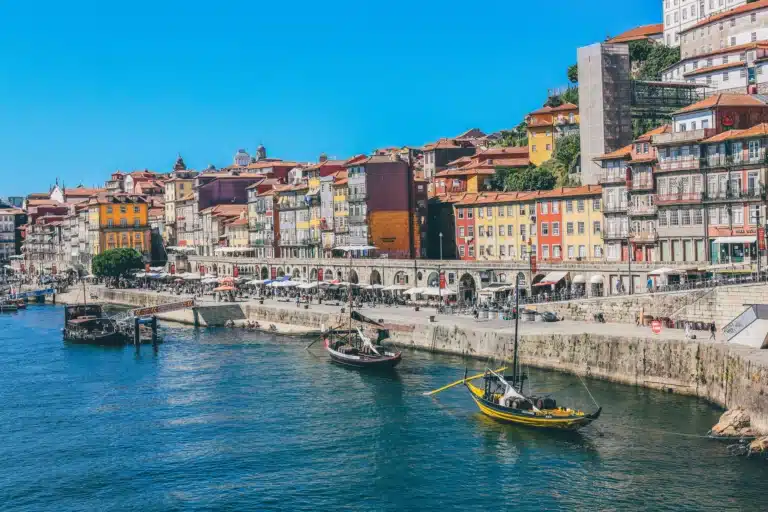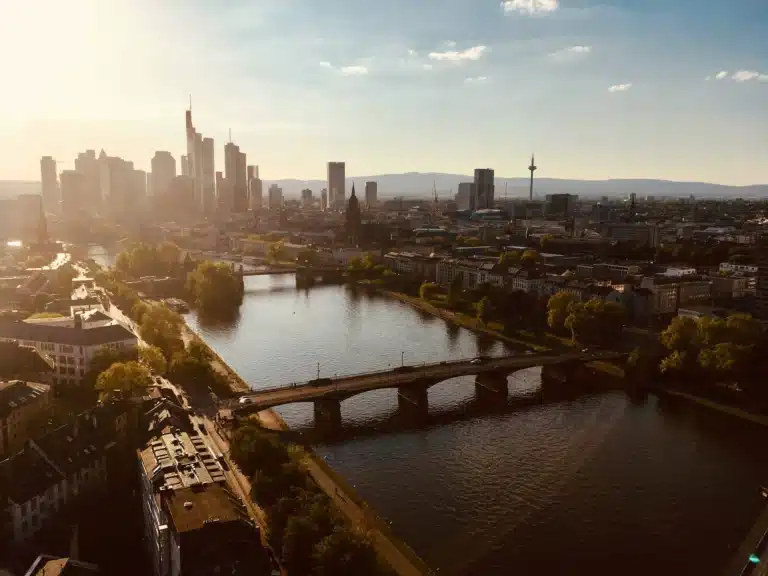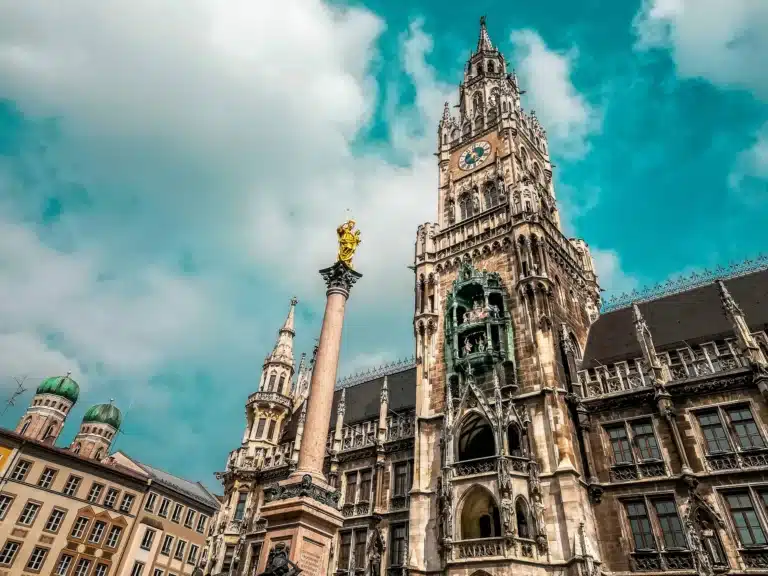The Netherlands is a long-time favorite among travelers and expats, beloved for its remarkable landscape, canals, culture, and laid-back atmosphere. Informally called Holland, the Netherlands is situated in Western Europe and consists of 12 provinces, and even has territories in the Caribbean – with the four largest cities being Amsterdam, Rotterdam, The Hague, and Utrecht.
If you are planning a trip, this guide to healthcare in the Netherlands will tell you everything you need to know to stay safe and informed during your stay.
Contents
- Healthcare Basics
- Cost of Healthcare in the Netherlands
- Seeing a Specialist
- Drugstores and Pharmacies
- Hospitals and Clinics in the Netherlands
- Emergency and After-Hours Healthcare
- Tips for Tourists
Healthcare In the Netherlands – The Basics
Boasting one of the highest quality healthcare systems globally, the Dutch have built a tightly managed market to achieve universal healthcare, resulting in a very accessible healthcare system that can be accessed via public or private health insurance. This is very different from the more socialized system seen in other European regions.
Public Healthcare
In the Netherlands, everyone (whether a visitor or resident) is entitled to healthcare services provided that they have health insurance. It is mandatory for all Dutch residents to possess basic public health insurance, and individuals who don’t have it will be penalized and automatically enrolled in an insurance plan with higher premiums.
However, certain groups are exempt from this obligation, including:
- Children under the age of 18 who are covered by their parent/guardian’s insurance.
- Temporary visitors from the EU/EEA/Switzerland who are eligible for healthcare coverage under the EHIC.
- Temporary visitors from outside the EU/EEA/Switzerland who must obtain private health insurance.
The basic Dutch insurance package covers the costs of nearly all common healthcare needs, such as GP and specialist services, medication, and maternity care. Nonetheless, some treatments are not covered, including cosmetic procedures and some dental care.
Cost of Healthcare In the Netherlands
The cost of health insurance for a Dutch citizen averages around 1,400 Euros per year, although individuals with lower incomes can receive government assistance to reduce their payments. Employers also contribute to the insurance scheme to cover children’s costs.
About 75% of the Netherlands’ healthcare system costs are financed by public funds, and insurers operate as non-profits.
A doctor’s consultation in the Netherlands typically costs between 30 and 50 Euros. Payment methods accepted in the country include iDEAL, which is an online bank transfer system and the most popular online payment method, as well as MasterCard, VISA, PayPal, and pay-later options like Klarna and AfterPay.
Doctors And Specialists In the Netherlands
In the Netherlands, GPs, or huisarts, play a pivotal role in the healthcare system. They are typically the first point of contact for any health concerns, routine health issues, pediatric and gynecological examinations, and referrals to other healthcare services such as hospitals and specialists.
Because Dutch GPs offer such a broad range of services, patients are less likely to be referred elsewhere or prescribed medication compared to other countries. For example, GPs perform routine OB-GYN check-ups, including pap smears and IUD insertion or removal.
To see a doctor in the Netherlands, you need to make an appointment, or afspraak, either online or by phone. Some clinics have designated walk-in consultation times, or in-loop spreekuur, typically reserved for short, simple questions and ailments, which are usually in the morning. When making an appointment, the GP’s assistant may ask a few questions to assess your situation and determine if you need to come in the same day or later. They may also provide medical advice since they are medical professionals.
If you want to find a GP in the Netherlands who speaks your language, download the Air Doctor app for Android or Apple.
In the Netherlands, most healthcare professionals can communicate in English proficiently. Some medical clinics specifically cater to English-speaking patients, and independent doctors or primary care clinics are easily accessible in all residential areas. These clinics typically operate from 8 AM to 5 PM.
Specialists usually treat patients in hospitals or specialty clinics.
Note: When you have a doctor’s appointment, it’s important to bring your appointment confirmation, health insurance card, and identification card. Waiting times may exceed your scheduled appointment time, but consultations usually last for about 15 minutes.
After-hours healthcare services are available at GP Posts, which are walk-in centers that are managed by nearby hospitals and operate between 5 PM to 8 AM. Nearly all GPs work for a GP Post and are required to provide at least 50 hours of after-hours care each year to maintain their registration. GP co-ops are a group of private physicians who collaborate to provide better after-hours care and share the responsibility, rather than each doctor offering the service 24/7 throughout the year.
Seeing A Specialist
In the Netherlands, you can’t seek treatment directly from a specialist; a referral from a general practitioner (GP) is necessary.
After obtaining a referral, you can schedule an appointment with the specialist of your choice. Most specialists operate as contractors rather than employees and work in a hospital setting instead of a specialized clinic. When you arrive at the hospital, locate the “Poliklinieken” sign and proceed to the appropriate department.
Gynecologists
As previously noted, general practitioners (GPs) in the Netherlands are responsible for providing all basic gynecological services. Although specialist and private OB-GYNs are available, they are not as prevalent as in other countries. If you require gynecological care, it’s recommended that you consult with your GP first. Following an assessment, they will determine whether specialist attention is necessary and provide a referral accordingly.
Dentistry
Dental services are privatized in the Netherland, and with the exception of children under the age of isn’t covered by basic insurance policies. Typically, dentists or tandarts work in individual practices, although there’s a growing trend of dentists working in larger practices.
Additional dental care can be covered by purchasing supplementary insurance policies. Dentists generally publish their rates on their websites, and insurance companies have comparable lists outlining the amount of coverage for each service.
Dental surgeons are often affiliated with hospitals, while orthodontists generally operate in private practices. If you require specialized care, such as pediatric dental services, a referral from a regular dentist is necessary.
If you are unable to reach a dentist, you can contact an emergency dentist, known as a spoed tandarts. These emergency clinics are located in major cities throughout the Netherlands and are open 24/7, catering to both residents and tourists.
Drugstores And Pharmacies
In the Netherlands, drugstores (drogist) sell things such as non-prescription medications, toiletries, and cosmetics. While, pharmacies (or apotheeks) sell prescription drugs, over-the-counter medications, vitamins, and at-home medical equipment. Pharmacists in the Netherlands can provide advice on medications and minor ailments. There is always at least one 24-hour apotheek open in the area. To locate the nearest out-of-hours pharmacy, you can check the list display in the pharmacy window or call 020 694 8609.
If you receive a prescription from your doctor, you must visit a nearby pharmacy or apotheek to obtain your medication. Pharmacists in the Netherlands typically have a good command of English and can explain the correct way to take your medication as prescribed.
Hospitals In the Netherlands
The Netherlands has many hospitals which offer excellent medical care – the three main types of hospitals are:
- Academic Hospitals: University medical centers allied with major Dutch universities. These facilities have a variety of researchers and specialists working within them and, as a result, can provide more specialized care.
- Teaching Hospitals: Work with university medical centers to aid in the training of nurses and medical interns. These offer more specialized treatments, and interns may accompany doctors during procedures.
- General Hospitals: These hospitals offer standard (but very good) healthcare for less specialized problems. If necessary, patients will be referred to more specialized facilities.
Children’s wards are available in all hospitals in the Netherlands, but there are also hospitals solely dedicated to children’s healthcare. Certain children’s hospitals and wards permit parents to stay overnight.
In most cases, hospitals require a referral letter from your GP, except in the case of an emergency. If you are admitted as an in-patient, you may be in a shared room or ward with up to six beds, with people of mixed genders. It is advisable to bring your own clothes and toiletries.
During your initial visit to a Dutch hospital, you should register at the front desk and provide basic information. You should also submit your referral letter and any crucial information from your GP at the counter. This will be forwarded to the specialist before you enter, and will be recorded in the hospital’s system and a small plastic card known as a ponsplaatje or electronische patiëntenpas. These act as a type of passport for your medical history and to send your bills to your insurer, and you should carry it with you whenever you visit the hospital.
Specialist appointments in hospitals typically last no more than 5 to 10 minutes, as the objective is simply to determine if further diagnosis and/or treatment are required. Following this, you may need to schedule a new appointment, undergo tests, or be referred to a different specialist.
After hours (5 PM – 8 AM), local hospitals provide GP services known as huisartsenpost. These services may be utilized for non-life-threatening but still semi-urgent medical conditions. You can contact them for advice, and if they believe you require an in-person doctor visit, they will give you an appointment, usually within an hour or two.
Some hospitals in the Netherlands have on-site pharmacies where you can obtain your prescription following treatment, rather than having to go to another pharmacy.
It is critical to note that visiting hours at hospitals in the Netherlands are strictly enforced and should be followed.
List of Hospitals In The Netherlands:
Note these are only some of the hospitals in the hubs of the Netherlands.
Amsterdam:
- Vrije Universiteit Medisch Centrum (VUMC)
- Antoni van Leeuwenhoekziekenheuis (AVL)
- Academisch Medisch Centrum (AMC)
Rotterdam:
The Hague:
- Haaglanden Medisch Centrum (HMC) campuses: HMC Westeinde, HMC Bronovo, HMC Antoniushove
Utrecht:
Emergency And After-Hours Healthcare
If you are in the Netherlands and encounter a life-threatening situation, it’s best to dial the emergency number: 112 for assistance.
When it comes to less urgent medical assistance, you can call:
- a GP
- Huisartsenpost
- Or the Central Doctor’s Service ((+31)205923434) if you do not need an ambulance but need urgent medical advice and are either not registered with a GP or cannot reach yours.
- Emergency dentists for dental emergencies
Tips For Tourists In the Netherlands
It’s best not to call the Netherlands “Holland”, since Holland is a region in the Netherlands, and those who reside outside of Holland may take offense if referred to as “Hollanders” instead of “Netherlanders.”
The Netherlands is one of the most low-context cultures in the world, and it is reflected in how Dutch people interact with you – since they are direct, clear, and blunt.
When Dutch people speak English, they use short pauses to allow others a chance to join the conversation. So, you might find you won’t get a word in! You aren’t being cut off on purpose; you just need to be aware of this and reset the length of time you wait before you start speaking.
Dutch people take punctuality (especially in a business context) very seriously and expect the same in return. If you are running late, call to explain and request that they wait or reschedule. In the same light, commitments are taken seriously, so don’t make promises or offer if you can’t deliver on them.
When dealing with Dutch medical providers, be straightforward about your needs and expectations. They are direct, and doctors in the Netherlands are often blunt. Do not take this as them being unfriendly; they simply want to ensure they understand symptoms and treatment options. Communicating with them in the same way means you’ll have a better chance of being heard. Don’t hesitate to exaggerate because that will equal you getting the help you need.
Some Useful Phrases:
Some useful phrases to learn are:
- Please call 112: Bel 112! (bel ayn ayn tway)
- Get a doctor: Haal een dokter! (haal ern dok-ter)
- I am ill: Ik ben ziek! (ik ben seek)
- Where is the hospital?: Waar is het ziekenhuis? (wahr is het see-kern-hoais?)
If you are a tourist in the Netherlands and would like to speak to a medical professional connected to an international network of doctors, you can make an appointment on the Air Doctor app right now and have an in-person or virtual consultation within minutes.











